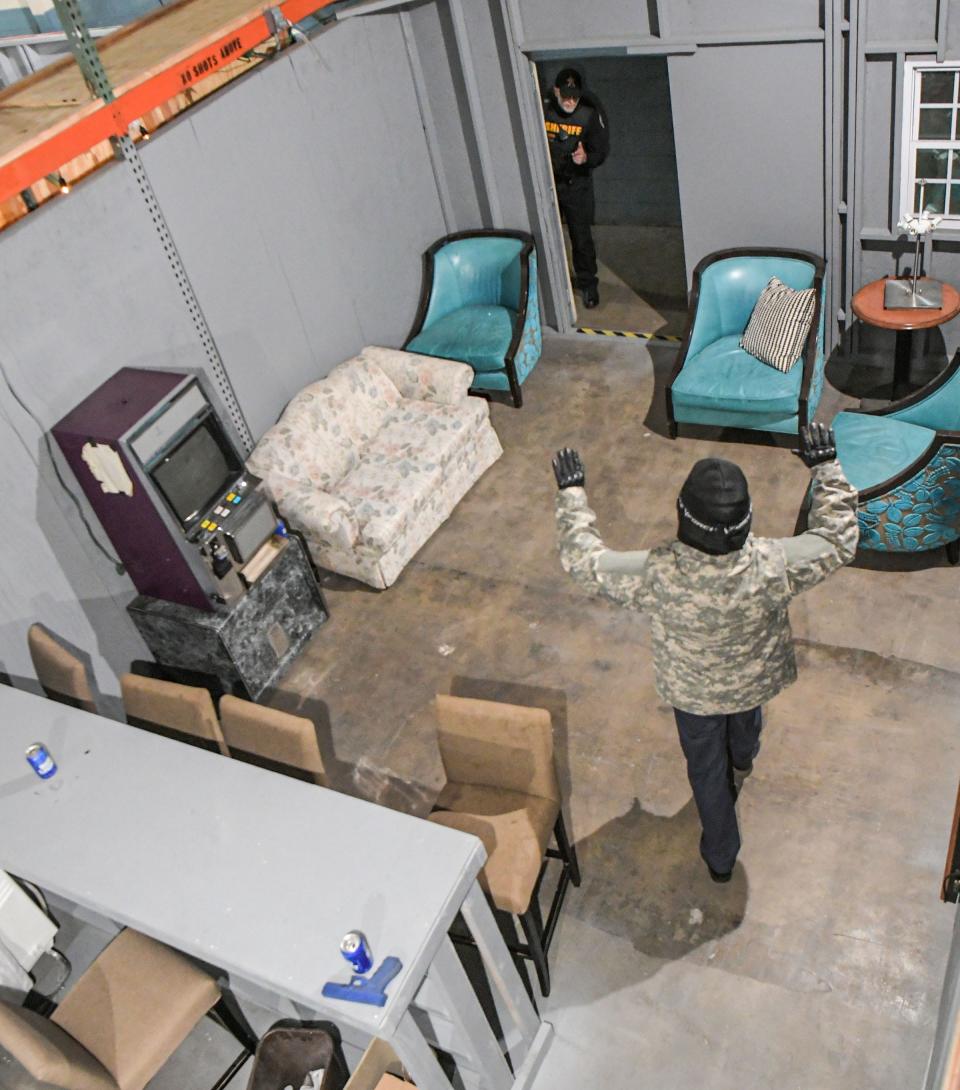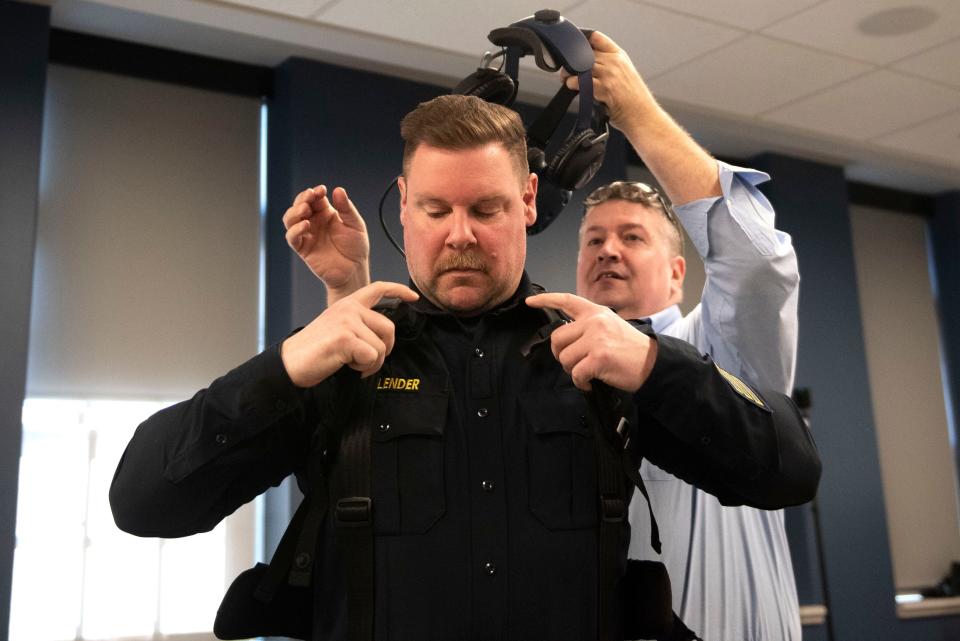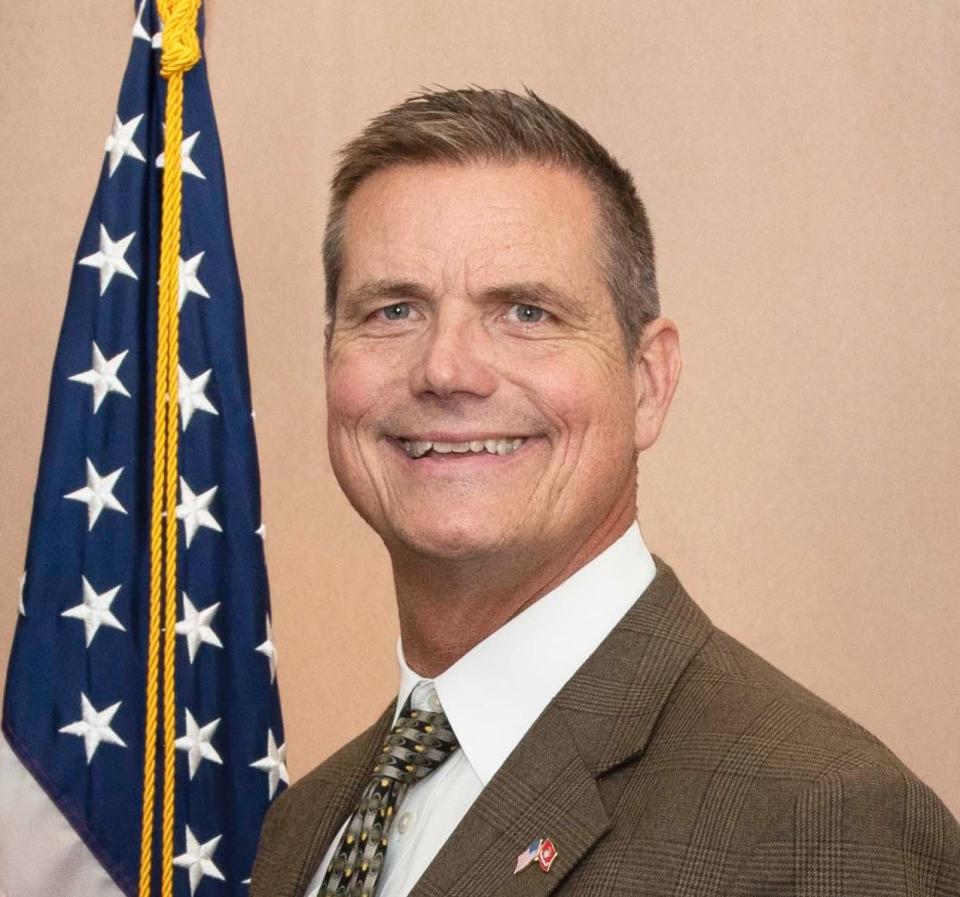Retired officer: De-escalation not dirty word; police mission to protect, serve | Opinion
I was extremely excited and just as nervous on my first day of patrol after being released from field training. After all, I was a lean, mean United States Marine (veteran) who was ready to chase bad guys, take people to jail, and save the world.
No one was more prepared or qualified for this task, at least in my mind! After patrolling for about an hour, I received my first radio call. I immediately picked up the microphone and acknowledged my availability. To my disappointment, it was an animal complaint. I checked my speedometer while driving to the call and discovered I was traveling well over the posted speed limit.

My heart was racing, and I had to calm myself down and slow down. I arrived at the residence to find an elderly woman in the front yard flagging me down. Exiting my vehicle, she directed me to the backyard, where to my surprise, there was an alligator lying under a palm tree.
This beast, in my mind, was 12 feet long and vicious. In actuality, the gator was approximately 6 feet in length and lying perfectly still, as if sleeping. I was scared to death, had no idea what to do or how to do it; however, I had an ego and a reputation to uphold. After all, I was a lean, mean United States Marine, a crime fighter ready to take on the world.
I assured the woman I had things well in hand and shooed her into her house. Not knowing what to do, I grabbed my shotgun and took up a cover position behind an adjoining tree. As time ticked by with nothing happening, the shotgun beginning to get very heavy and the alligator ignoring me, I realized it was a stalemate.
After 20 minutes or so, a gentleman pulled up next to me, exited his truck, looked at me, and said, "Put that thing (shotgun) away, boy."
He was thin and all of 5 feet, 4 inches tall and weighed 130 pounds. He wore a worn-out pair of jeans, a button-up shirt, and a dirty cowboy hat. I was 6 feel 1 inches tall, 190 pounds, and was dressed in my spit and polished uniform. What was this frail, small-in-stature gentleman going to do that I, a lean, mean United States Marine, couldn't do?
He jumped on the back of the alligator, looked at me, and said, "Hold him for me."
I looked around, hoping he was speaking to someone else but not wanting to be embarrassed and having way too much ego and pride to say no, I jumped down to hold the gator. This gentleman showed me how to hold the gator and clamp his jaws shut.
When he was sure that I had things in control, he got up and left me there. I believe he knew I was scared to death, and he enjoyed watching me squirm and sweat. In just a few moments, he pulled out a roll of tape and taped the gator's jaws shut. We loaded the gator into the back of his truck and later released it in a preserve. Of course, I went to the residence and informed the elderly complainant that I had solved her issue.
You may ask yourself, what does wrestling an alligator have to do with de-escalation? When someone calls the police, it's because they need assistance. They call with the expectation that the police will make the situation better — to help, not hurt!
Every law enforcement organization exists to serve and protect the community. Every law enforcement officer entered the profession because they wanted to help people, make a difference, and serve. No one entered this profession because they wanted to escalate or to do harm.
Serving your community could mean "wrangling an alligator" or de-escalating an intense situation. It's about community service and community expectations. It is why we are here and why we exist!
What is de-escalation? De-escalation is simply reducing the intensity of a situation, slowing down or creating time, and decreasing the potential use of force by the officer. Thus, reducing injuries to both the officer and the community as a whole.

De-escalation is not a dirty word, and it is not an officer safety issue. It is a community service issue.
We can never assume de-escalation will always be effective. There are incidents where de-escalation may not be appropriate or will fail. Officer safety and sound tactical techniques should never be compromised.
Force is always an option and may be necessary to obtain compliance. In the 1989 film "Road House," Patrick Swayze said it best while instructing his bouncers about their assignment.
"Be nice until it’s time not to be nice," he said.
Officers should always use their interpersonal communication skills first until it is ineffective or the situation warrants different actions.
Law enforcement executives have a substantial role and responsibility to move the organization into the community-service mindset. The responsibilities go beyond well-written vision, mission statements, and lofty social media marketing techniques.
Executives must recognize the law enforcement culture, ego, and "I'm in charge and it is my way or the highway” mentality. Executives must embrace and require the service mentality from all organizational components. They must reward and promote officers who demonstrate this mentality and professionalism and implement systems to discourage those who don't.
Executives must also staunchly defend officers who use the necessary force when de-escalation is ineffective or impractical, even when it is politically unpopular. The community expects law enforcement to provide community service and de-escalation as an essential community service component. It's why we are here!

Officers also expect to be steadfastly supported when they use reasonable force. Socrates said, "The secret of change is to focus all of your energy not on fighting the old, but on building the new."
David R. Thompson, a U.S. Marine Corps veteran and Indian River County, Florida, resident, served the St. Lucie County Sheriff’s Office for over 30 years. He is an adjunct faculty member at Indian River State College. This column is reprinted with the permission of the FBI National Academy Associates, Inc. The FBINAA is a private, non-profit organization and is not part of the Federal Bureau of Investigation or acting on the FBI’s behalf.
This article originally appeared on Treasure Coast Newspapers: Police teacher: De-escalation not dirty word; protect, serve | Opinion

